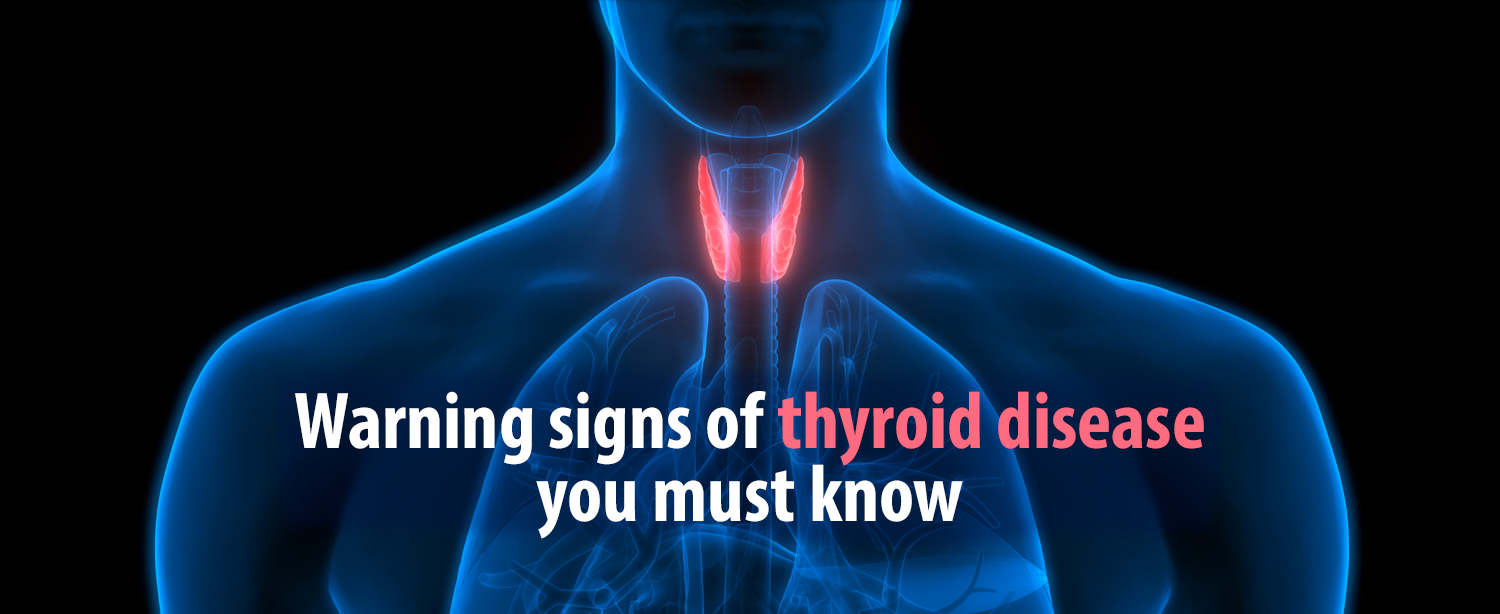The thyroid is a tiny, butterfly-shaped gland located in the neck. It significantly affects general health and wellbeing and is essential for your body’s metabolism. Unfortunately, millions of people throughout the world experience thyroid diseases such as hypothyroidism and hyperthyroidism. Statistics suggest that thyroid disorders are one of the most common endocrine disorders and affect nearly 4.2 crore Indians.
How does the thyroid gland function?
The thyroid gland makes hormones that control various aspects of the body’s metabolism, such as heart rate, body temperature, and the rate at which energy is used by the body. Thyroxine (T4) and triiodothyronine (T3) are released into the bloodstream to do this. These hormones are essential for preserving the body’s homeostasis, or overall equilibrium. The body’s metabolism runs more efficiently when the thyroid is in good health. However, thyroid abnormalities can result in a number of different health problems.
Common thyroid disorders
There are several thyroid disorders that can affect the body’s metabolism and overall health. The most common include:
- Hypothyroidism
This occurs when the thyroid gland doesn’t make enough thyroid hormone. - Hyperthyroidism
This occurs when the thyroid gland makes high levels of thyroid hormone. - Goiter
This is a condition that causes the thyroid gland to become enlarged, resulting in a visible swelling in the neck. This may occur due to a variety of factors, including an iodine deficiency, autoimmune disorders, and certain medications. - Thyroid nodules
These are small lumps that can form in the thyroid gland. Most thyroid nodules are benign (non-cancerous), but some rare ones may be cancerous. - Thyroid cancer
This is a cancer that affects the thyroid gland.
Warning signs of thyroid disease
Depending on whether the body is producing too much or too little thyroid hormone, different indicators of thyroid disorders might be seen in different people. Thyroid issues are more common in women than in men. Around 1 in 8 women may experience thyroid issues at least once in their lives. Some women are more prone to thyroid issues than others, depending on factors including age, body type, and the level of thyroid hormone in the body. Here are some of the signs and symptoms that could indicate a thyroid abnormality:
- Fatigue and weakness
- Sensitivity to heat and cold
- Significant weight gain or weight loss
- Change in the appearance
- Feeling miserable
- Headaches
- Mood swings
- Digestive issues
- Dry skin
- Menstrual irregularities
- Fertility issues
- Thinning hair
While these symptoms may not necessarily indicate thyroid problems, you must still speak to your doctor for further testing and diagnosis. Thyroid disorders can often be diagnosed through a blood test that measures the levels of thyroid hormones and thyroid-stimulating hormone (TSH) in the body. This helps take the required medical action and reduces your risk of suffering from thyroid complications.
Facts about your thyroid
Here are some essential things to know about your thyroid gland:
- A TSH test is the most accurate way to diagnose a thyroid imbalance.
- Stress can worsen thyroid disorders.
- A thyroid imbalance must be addressed before and during pregnancy.
- Thyroid disorders can be emotional.
- Thyroid disorders usually require lifelong treatment.
- Women are more prone than men to have thyroid issues.
- Most thyroid disorders cannot be prevented.
Treatment of thyroid disorders
Treatment for thyroid disorders typically involves medication to correct hormone imbalances. Surgery might be required in some complex cases to remove all or a part of the thyroid gland. Thyroid imbalance is serious and can have a significant impact on your overall health and well-being. You must take charge of your thyroid health without any delay and seek specialist care. Consult doctors at our Department of Endocrinology & Diabetes for a detailed evaluation, management and care of your thyroid. Early diagnosis and treatment can help to prevent long-term health complications. Do refer this link for further details:


